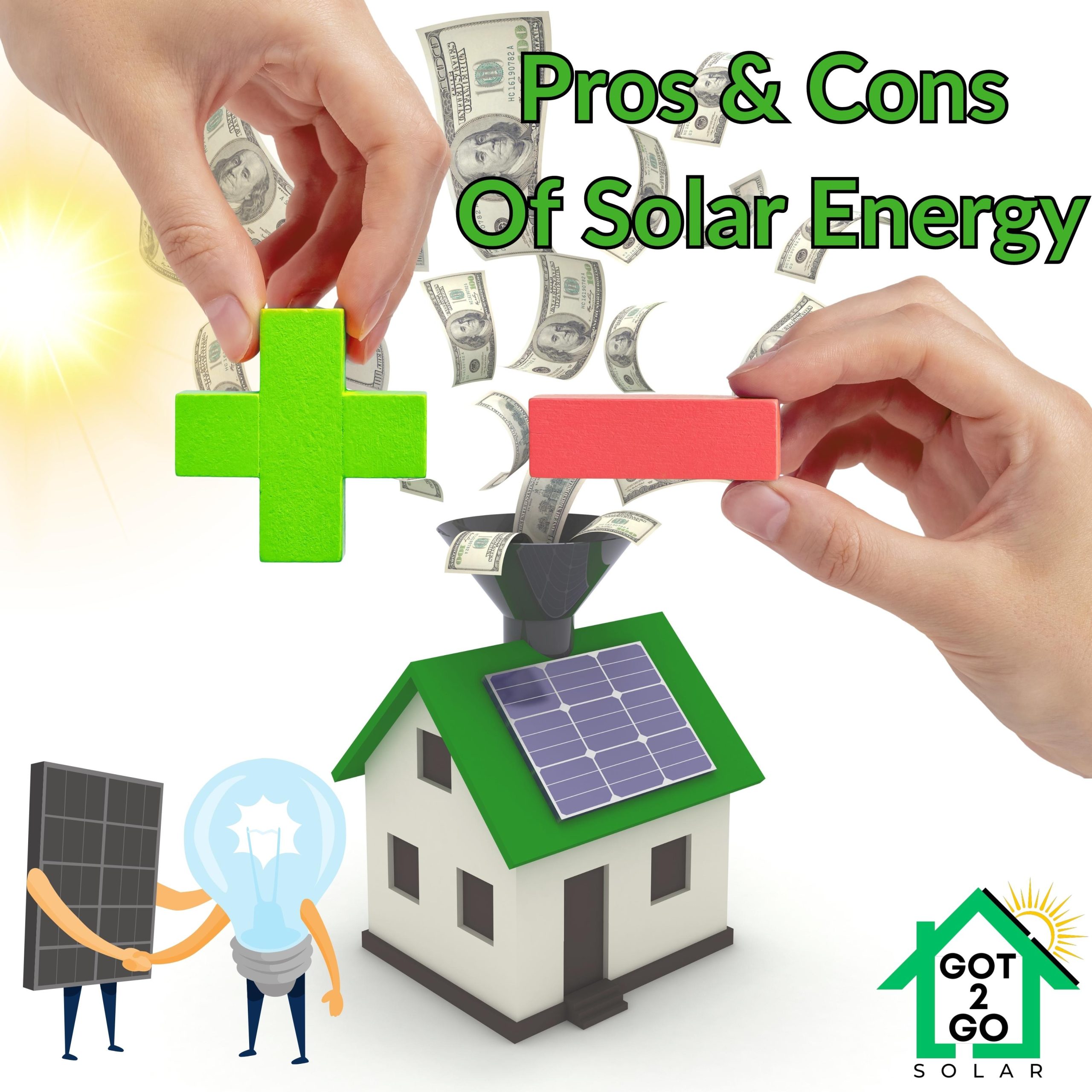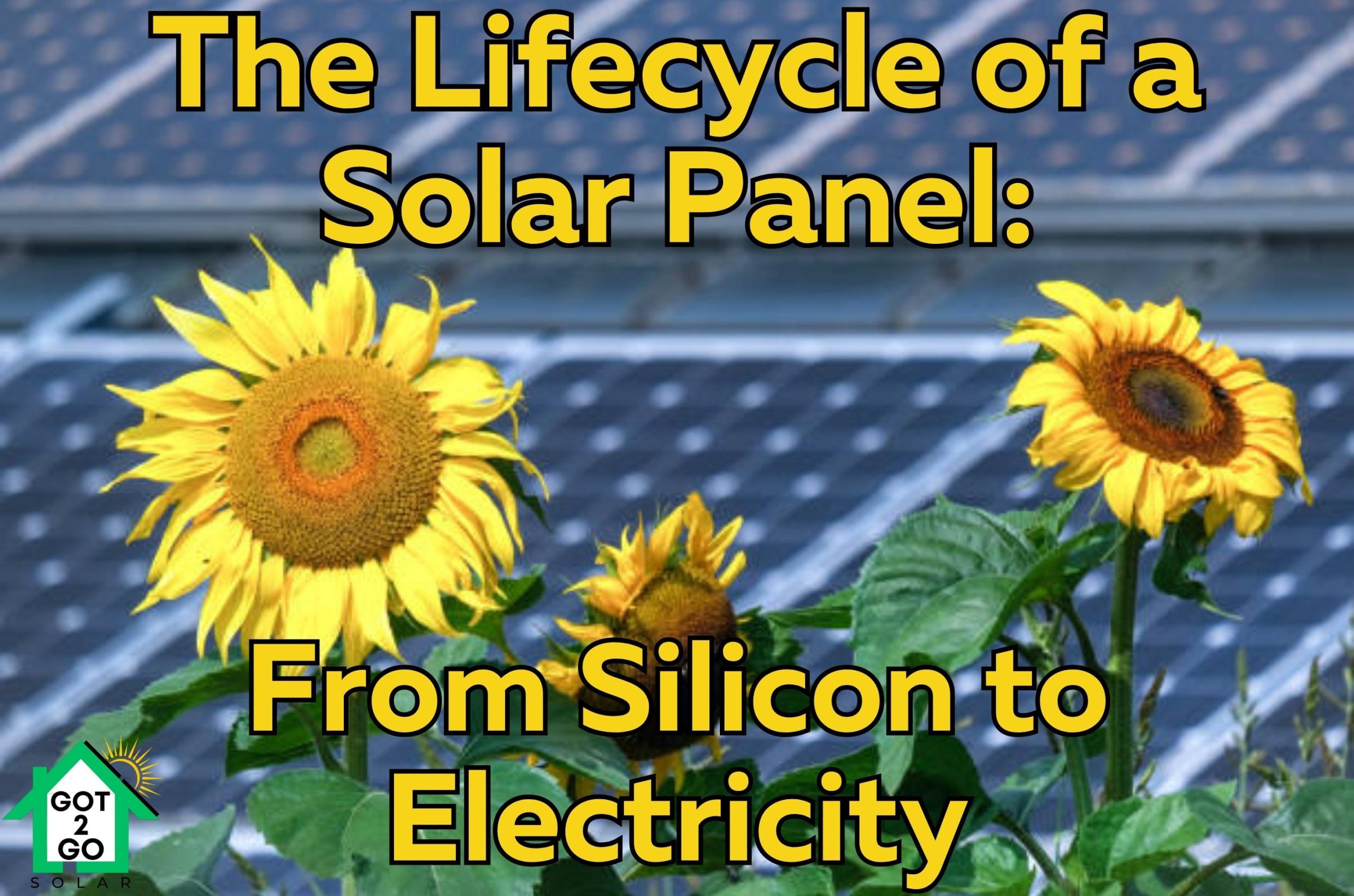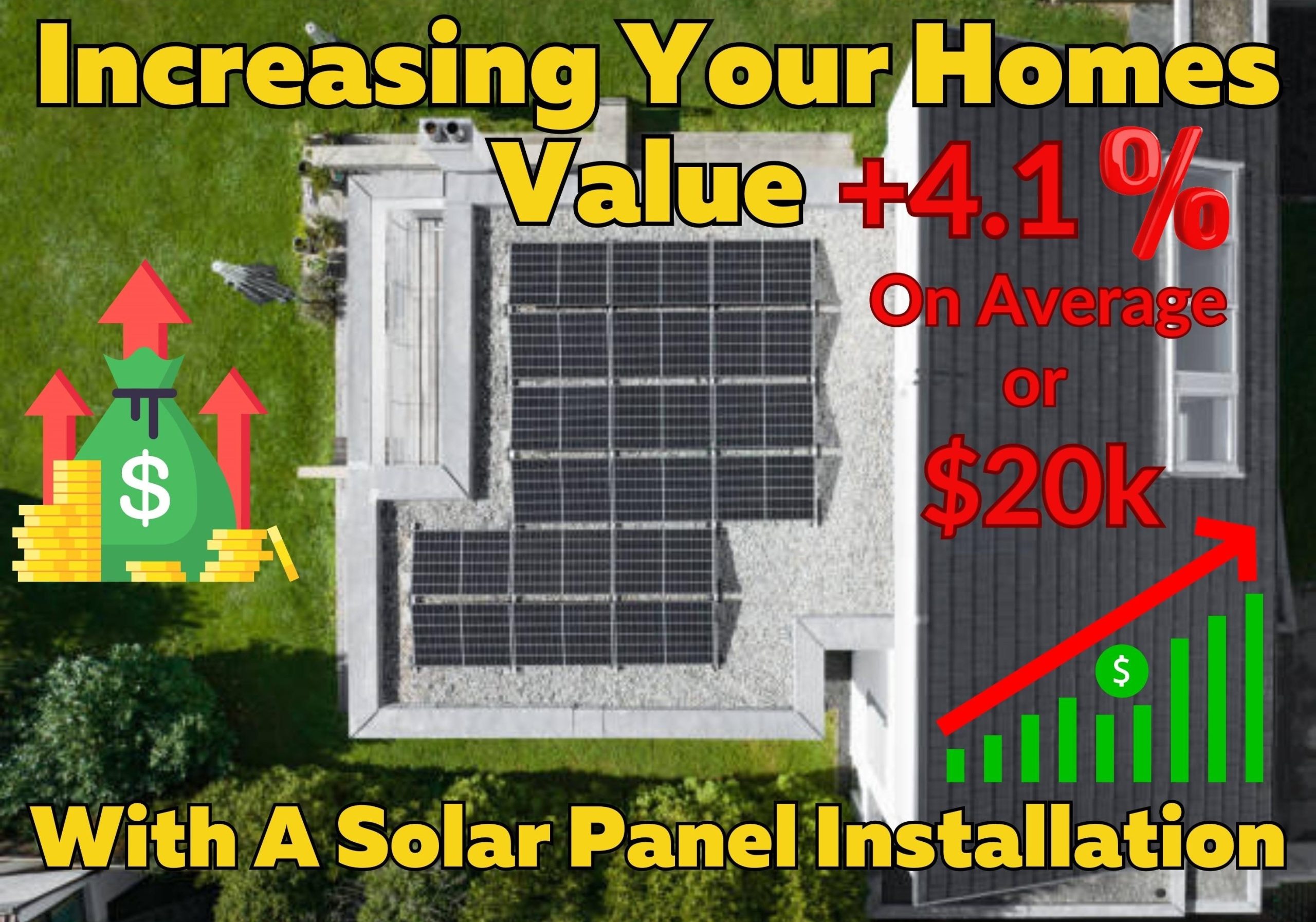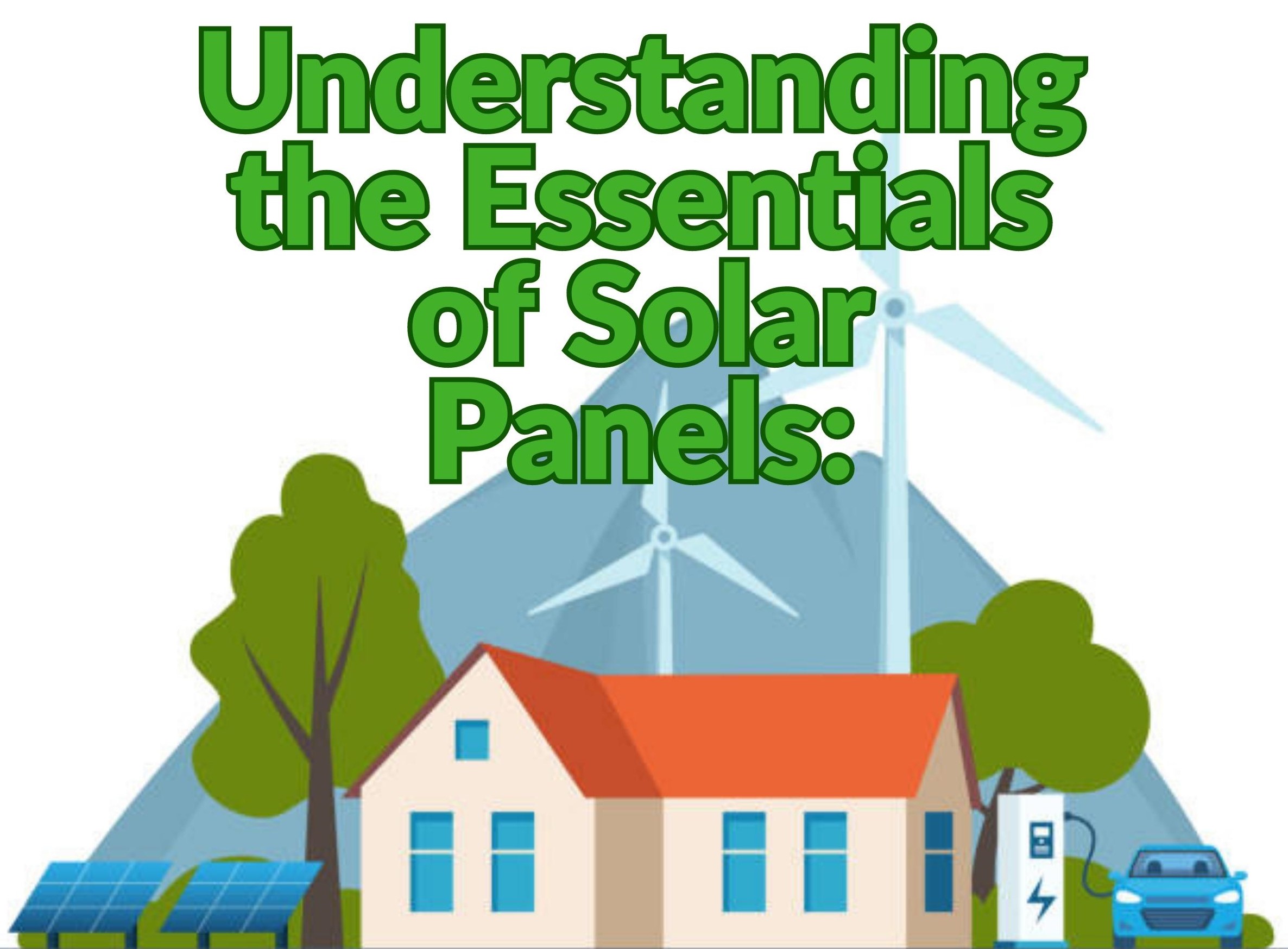Get Solar Smart
Got 2 Go Solar Educational Solar Blogs
The Pros & Cons of Solar Energy
Discover the pros and cons of solar energy. Learn how it can save money, increase home value, and its environmental impact.
Pearl Certification: A Partnership for Sustainable Homes
Pearl Certification is a national firm that provides third-party certification of high-performing homes.
The Lifecycle of a Solar Panel
Explore the journey of a solar panel from silicon to electricity. Discover the production, installation, maintenance, and end-of-life management
Increasing Your Homes Value with A Solar Panel Installation
In today’s real estate market, homeowners are continually seeking effective ways to increase the value of their homes. One strategy that has gained considerable attention is the installation of solar panels. Solar power not only reduces your carbon footprint and electricity bill, but it can also significantly enhance your home’s value.
The Environmental Impact of Solar Energy: What You Need to Know
As we enter an era where sustainability and environmental consciousness take center stage, solar energy is becoming an increasingly popular choice for homeowners and businesses alike. But what exactly are the environmental impacts of solar energy? This post aims to shed light on this very topic.
Understanding the Essentials of Solar Panels:
The utilization of solar panels can significantly reduce energy bills and carbon footprint while adding value to the property. However, many homeowners are hesitant to make the switch to solar power due to the lack of information and understanding about this technology.
Unlock the Power of Solar with Our FREE Guides
Gain insights, boost your property value, and tap into solar benefits with our comprehensive guides tailored for homeowners like you.
Boost Your Home Value With Solar: A Property Owner’s Guide
Learn how solar panels can increase your home’s value, reduce your energy costs, and make your property more attractive to eco-conscious buyers.
Homeowner’s Guide: Federal Tax Credit For Solar Photovoltaics
Explore how federal tax credits work and learn how to take full advantage of them to offset your solar panel installation costs.
Solar Guides: Buyer’s Checklist
Navigate the world of solar energy with ease. This guide walks you through every step, from choosing the right provider to maximizing your return on investment.
What are solar panels and how do they work?
Solar panels are made up of photovoltaic (PV) cells, which convert sunlight into electricity. When the sun shines on the panels, the PV cells create an electric field that generates direct current (DC) electricity. This electricity is then converted into alternating current (AC) electricity by an inverter, which can be used to power your home or business.
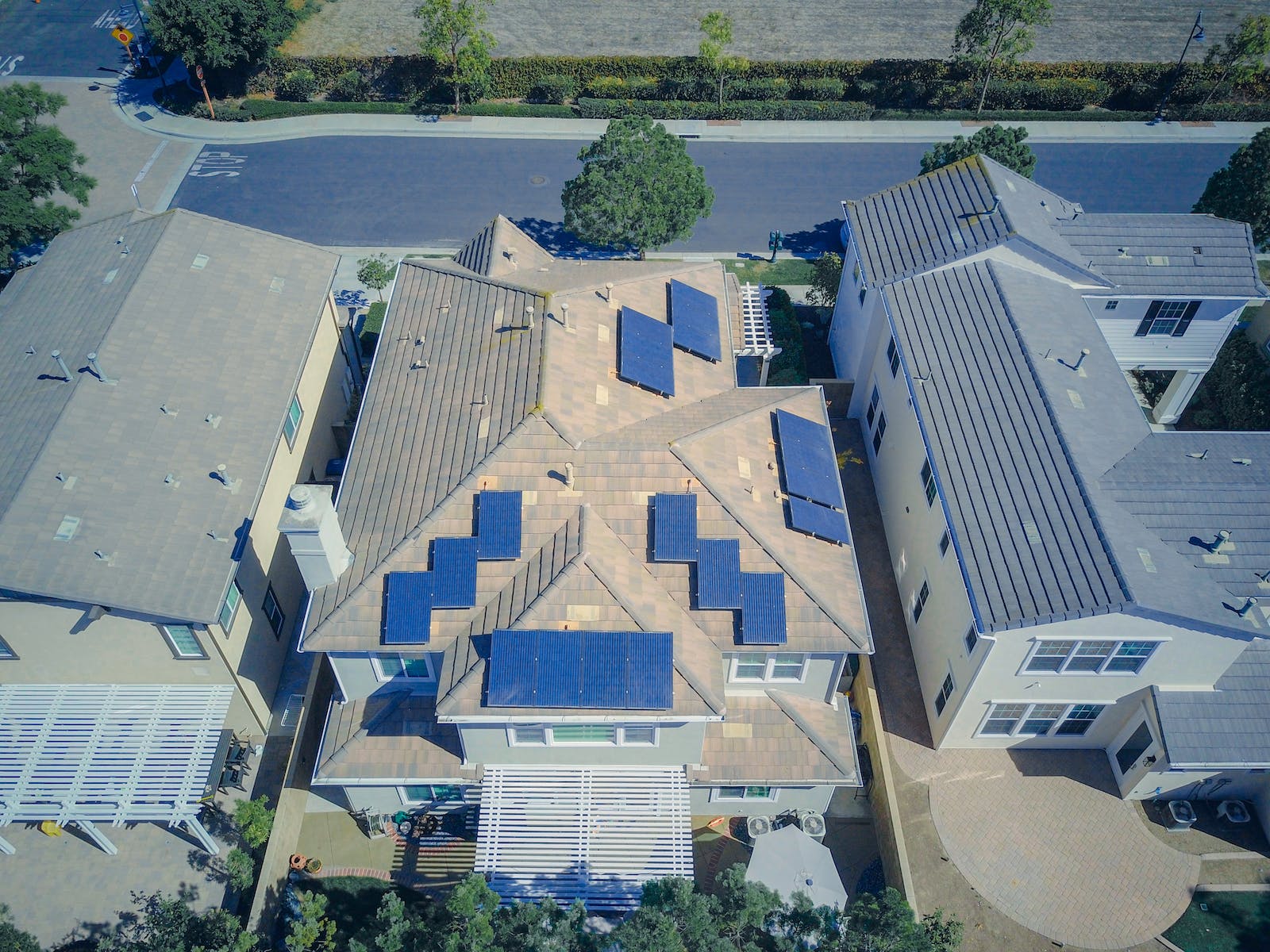
Solar panels are becoming increasingly popular among homeowners as they are a reliable and cost-effective way to produce electricity.
Why Switch To Solar?
Here are the Top 3 Reasons You Can't Ignore

Save money on your energy bills
By installing solar panels, you can generate your own electricity and reduce your reliance on the grid. This can lead to significant savings on your energy bills over time. Solar energy is a free, renewable resource, so you can continue to save money on energy costs for decades to come.

Reduce your carbon footprint
Solar energy is a clean and sustainable alternative to traditional energy sources like coal, oil, and natural gas. By switching to solar energy, you can significantly reduce your carbon footprint and help protect the environment. Solar energy systems produce zero emissions and help to combat climate change.

Increase your property value
Solar panels can increase the value of your home or business and make it more attractive to potential buyers. A solar energy system is seen as a valuable and desirable feature by many homebuyers, and it can provide a competitive edge in the real estate market. In fact, studies have shown that homes with solar panels sell for more than homes without them.

See how you could save INSTANTLY...
...BEFORE speaking with anyone
3 STEPS:
- Enter Address: Get estimate of sqft available for solar panels
- Enter Average Electric Bill: Calculate Estimated Savings
- Start A Quote: Speak with an expert to get precise estimate
See your approximate lifetime savings, increase in home value, environmental impact, and the recommended system.
Get ballpark pricing on your system!
Solar power has a range of benefits
- Energy Independence
- Energy Efficiency
- Energy Security
- Lower Energy Bills
- Increased Home Value
- Long-term Savings
- Environmental Benefits
- Tax Credits and Rebates
- Improved Public Health
YOU'VE GOT QUESTIONS,
WE HAVE ANSWERS!
Frequently Asked Questions
The terminology and technical aspects of solar energy can be confusing for new customers. We are here to HELP!

- Can solar panels actually save me money?
Yes. Michigan homeowners pay an average of 17.69 cents/kWh for electricity, almost four cents above the national average!
There are two types of savings you’ll find with solar
- Short term savings are savings you’ll see pretty much at the start of having your solar system turned on. If your loan or lease payments are lower than your costs now, you have day one savings.
- Long term savings are savings you may not see right away, but you’ll see either once your solar loan is paid off, or when your electricity bill rises higher than your solar payments. If you have a 12-year loan, after year 12 the loan is paid off and you’ll have no electricity costs. You’ll end up saving thousands more over the lifetime of having your solar system than you would have without going solar at all!
- Are there any other cost benefits?
Yes. additional ways that solar panels can save you money:
- Lower Energy Bills: By generating your own electricity, you can significantly reduce your reliance on traditional utility companies, which can translate into lower monthly energy bills.
- Tax Credits and Incentives: Many states and municipalities offer tax credits and other incentives to homeowners who install solar panels, which can help reduce the upfront cost of installation and provide long-term savings.
- Increased Home Value: Solar panels can increase the value of your home, making it more attractive to potential buyers and providing a competitive edge in the real estate market.
- Reduced Maintenance Costs: Solar panels require very little maintenance and have no moving parts, which can help reduce the cost of repairs and replacement over time.
- Energy Independence: By installing solar panels, you can take control of your energy costs and reduce your dependence on traditional utility companies, which can protect you from rising energy costs in the future.
- Net Metering: Many states offer net metering programs that allow homeowners to sell excess solar energy back to the grid, effectively offsetting their energy usage and potentially even earning them money.
- Long-Term Savings: Solar panels can last for decades and provide long-term savings on your energy costs, making them a smart investment in the future.
- How do solar panels work?
When sunlight hits the modules on a solar photovoltaic (PV), the module proceeds to convert the sun’s energy into electricity used to power your home.
A solar inverter converts DC electricity from your solar modules to AC electricity, which is used by most home appliances.
Electricity flows through your home, powering electronic devices.
Excess electricity produced by solar panels is fed to the electric grid.
- What is an offset?
A solar offset allows homeowners to offset their energy usage with solar energy generated by their solar system installed on their property.
Homeowners can sell the excess solar energy they generate back to the grid, effectively offsetting their energy usage and reducing their reliance on traditional utility companies.
This can lead to significant savings on energy costs and a reduced carbon footprint, making it a smart and sustainable choice for homeowners looking to switch to solar energy.
- Do solar panels work well in the Midwest?
Yes! Michigan’s latitude and climate allow for excellent solar production.
Solar panels still generate electricity for your home whether or not the sun is shining brightly; in fact, cold temperatures typically improve panel output.
Whether it’s a sunny day or a snowy midwest winter day, you’ll always have highly-energized solar panels.
Take Advantage of the Solar Tax Credit
Request Your Free Solar Quote Now!

Common Solar Myths
- Myth #1: Residential solar is too expensive
- False: The cost of the solar panels will be offset by the decrease in your electricity bill & solar costs have decreased more than 90% in a the last decade!
- Myth #2: Residential solar only works in sunny areas
- False: While it is true that solar panels work best in direct sunlight, they can still produce electricity on cloudy days or in areas with less sunlight. In fact, some of the most successful solar installations are in areas with high levels of air pollution that can block direct sunlight.
- Myth #3: Solar panels require a lot of maintenance
- False: Modern solar panels are designed to be low-maintenance and require little upkeep beyond occasional cleaning. Additionally, many solar panel manufacturers offer warranties of up to 25 years, which can provide peace of mind for homeowners.
- Myth #4: Solar panels are not durable and may damage your roof
- False: Solar panels can actually protect a roof from damage by providing a layer of insulation that can reduce heat transfer and extend the life of the roof.
- Myth #5: Solar energy is not reliable
- False: Solar energy can be combined with battery storage systems to provide reliable power even when the sun is not shining. Additionally, many utilities offer net metering programs that allow homeowners to receive credit for excess energy generated by their solar panels, which can be used to offset energy costs during periods of low sunlight.

